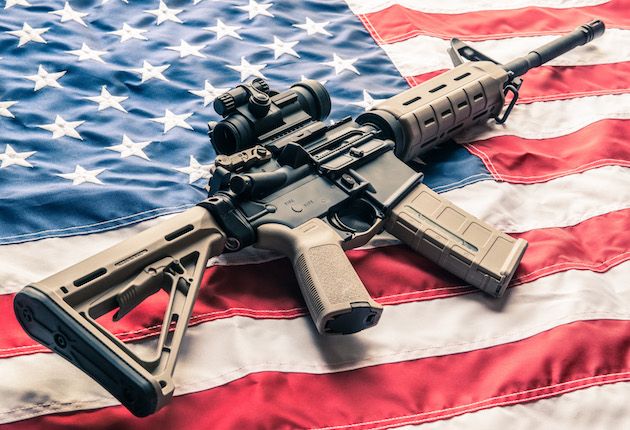
Lets imagine that we are able to pass ANY legislation. We can push it through the government apparatus no problem; any regulation we want. What regulation would you actually pass?
Lets take for example the AR-15. Let's say we want to restrict it. Or ban it altogether. OK. We have banned the AR-15 in the U.S.: illegal to sell - illegal to own. This means, anyone who owns an AR-15 now needs to either get rid of it or own it illegally. And, the sports stores no longer carry it. So, what are the Ar-15 owners gonna do? Are they going to put their Ar-15 in the garbage? Are they going to take it to a regulated disposal facility, where they give it up for nothing and the government has to spend money to create the facilities? I think we have created a scenario where the market becomes flooded with really cheap illegal AR-15s. RIght? They can only be sold illegally and a bunch of people are trying to get rid of theirs so the price goes way down and here's the buyer contingent: anyone who is poor and is willing to break the law. Ok. So we set up some kind of government buyback program, where they can take it back to the store and get, what? Full price? Half-price? "Market" price? How do you pay? Never mind where you get the money but how do you set the price? Do you set it low, so people are incentivized to sell their ARs elsewhere? Or do you set it higher than street price incentivizing participation in the program but also illegal import and manufacture for profit because remember you are now PAYING PEOPLE for this one thing so its easy money. I mean, China's gonna have a field day. So ok, you set up a system where you make sure the rifle is legitimate, like you look at the serial numbers, and check the papers of the guy who brought it, but now you have excluded all the illegal copies of the weapon which are what you really were trying to get off the streets in the first place. Right?
Basically, the "obvious" solution requires everybody in the intended audience to start actively trying to make the solution work, which is essentially what the communists in russia and other places like that were trying to do. And after they discover that their panacea doesn't work at all because, big surprise, people are not going to bend over backwards to make your dumb utopia work out the way you wanted, they try to force a sort of "prescribed" compliance. Like when children are playing and the rules are broken and someone exploits them and they go "no you can't do that, because that breaks my game"... only instead you have adults with concentration camps and electroshock therapy and God knows what else. AND IT STILL FAILS EVEN WORSE.
I mean, people like to say things like " Well, at least it's something" or "At least I'm trying to do something", and it doesn't make sense to me, because a wrong solution does not solve the problem "a little bit", right? It either does not work at all or makes things even worse. For most problems, even when multiple correct solutions exist, the overwhelming majority of them are still wrong. No solution, in most cases is gonna be better than a wrong solution. "Trying" is not demonstrably better than doing nothing. In fact I am trying to prove the reverse here. You wouldn't, for example, if you didn't know why the patient's face is turning blue, just grab a random bottle off the shelf and be like "drink this, at least it's something", because you could totally poison the guy, am I right? I just can't understand it, people don't think these things through even half a step into their effects, because they are really sold to the public and peers on their moral/ethical "payload" so to speak, rather than their declared problem-solving value.